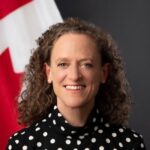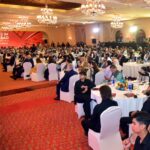UNITED NATIONS, Jan 16 (APP): The long-running Inter-Governmental Negotiations (IGN) aimed at reforming the UN Security Council will resume on January 25 to build on the work done in its previous meetings, General Assembly President Volkan Bozkir has said.
Progress in the negotiations was held up as India, Brazil, Germany and Japan — known as ‘Group of Four’ — have remained inflexible in their push for permanent seats in an expanded Council, while opponents insist that additional permanent members would not make the 15-member body more effective and efficient.
Answering a question at his press conference on Friday, Bozkir, a Turkish diplomat, said that since September 2020 when he assumed presidentship of the 193-member Assembly, he has held negotiations with almost every group involved in the reform process.
Following his discussions, he said he appointed two co-chairs for the IGN process — the Permanent Representatives Alya Ahmed Saif Al-Thani of Qatar and Joanna Wronecka of Poland — to run the negotiations, which began in 2009.
“Of course it’s a very complex challenge that is closely linked to one of the main pillars of our Organization, which is peace and security,” Bozkir told reporters at UN Headquarters in New York.
“There’s no doubt that the membership of the Security Council as well as working methods must reflect the realities of the 21st century.”
The Assembly president said the process is member states’ driven and “I believe that dialogue among member states is the most effective way to bring the reform process forward”.
The meetings later this month “will also give some lights on what we will be able to do in the following months,” he said.
Full-scale negotiations to reform the council began in February 2009 on several key areas. These include the question of veto, regional representation, membership, the working methods of the council and its relationship with the General Assembly.
Despite a general agreement on enlarging the council, member states remain sharply divided over the details.
The G-4 countries have shown no flexibility in their campaign to expand the council by 10 seats, with six additional permanent and four non-permanent members.
On the other hand, the Italy and Pakistan-led Uniting for Consensus (UfC) group firmly opposes any additional permanent members, saying that such a move will not make the body more effective and will also undermine the fundamental principle of democracy that is based on periodic elections.
The UNSC currently comprises of five permanent members — Britain, China, France, Russia and the United States — and 10 non-permanent members.
During a General Assembly debate on the Security Council reform in November, Pakistan’s UN Ambassador Munir Akram said the UfC’s proposal reflected the most suitable basis for an agreement on comprehensive reforms.
“If it is approved, it will obtain the largest possible support in the General Assembly and the essential ratification of all the five permanent members.”
The UfC proposal, he said, was also flexible and through variable arrangements, could accommodate the aspirations and interests of a majority of the UN membership, including African and other regional groups such as the Arab Group and the Organization of Islamic Cooperation (OIC).







